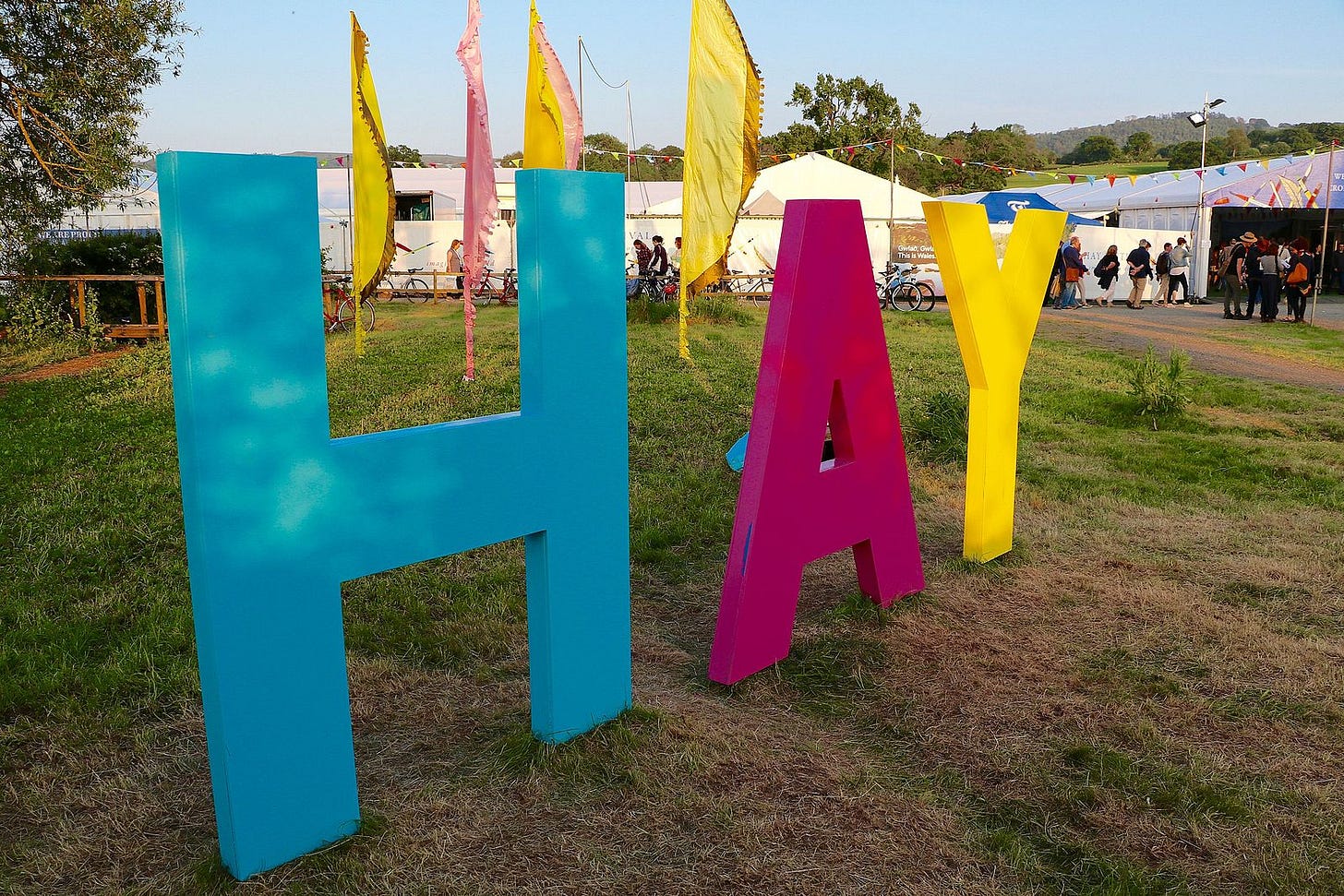The Young Activists Who Are Bad for Books
Also: A fire destroys a historic church and its artwork, the Ursula K. Le Guin Writers Residency, on the “classic” work of art, and more.

Two stories highlight how young activists and mid-level editors in publishing are bad for books.
First, there is the group Fossil Free Books that protested Baillie Gifford’s sponsorship of literary festivals in the UK because the firm holds a minimal amount of investments in fossil fuels and shares in Israeli companies.
The Guardian spoke to four members of Fossil Free Books. One was Omar Robert Hamilton, who “didn’t know whether the investment management firm ‘was a drink or a bank or what’ until he got involved with Fossil Free Books (FFB) in March . . . Once Hamilton was up to speed, he says it was ‘a very straightforward choice’ to . . . boycott any Baillie Gifford-supported events,” though he admits that the outcome of the boycott was not “a victory.” In fact, two other members of FFB now claim that FFB wasn’t trying to cancel Baillie Gifford sponsorship at all. It was just trying to force the firm to divest money it does not own from all fossil fuels and all Israeli companies because FFB thought that goal was “achievable.”
Why didn’t the group protest Amazon, too, The Guardian asks, which has commercial ties to Israel? Because that would not be “achievable”: “Whether an author’s book is sold on Amazon is ‘something that we can’t control,’ says Hamilton. ‘That’s the decision that our publishers make for us, it’s something that we don’t have enough leverage over right now to actually make any impact.’” Of course, it is no more achievable to protest Baillie Gifford ties to Israel than it is to protest Amazon’s. The only difference is that protesting Amazon would cost the protestors something.
While the Hay and Edinburgh festivals will probably survive, the smaller festivals who relied on funding from Baillie Gifford will struggle. Adam Sherwin reports: “Wigtown Book Festival, which has been running for 25 years in the Dumfries and Galloway countryside, confirmed this week that Baillie Gifford had withdrawn its sponsorship from the event. ‘The financial position for most festivals is already fragile,’ Adrian Turpin, artistic director of festival, told iNews. ‘We’re constantly searching for new sources of funding but now we have £100,000 missing from our five-year plan.’”
Despite this, FFB wants “‘to continue having conversations with festivals,’ Gaitán Johannesson tells The Guardian, “‘because we want to be part of the transition to a more sustainable model.’ That’s what is ‘immediately next’ for the group.”
Second, there is the experience of this novelist who spoke to The Times about “her young editor at a major publisher”:
She said: “When I received the edits on my novel, I was prepared for notes about the book’s structure, character development and dialogue.
“What I hadn’t readied myself for were comments which touched upon the book’s morality — as though a contemporary novel had an ethical responsibility that went beyond mere entertainment.
“At one point in the text, I’d described an entirely peripheral character as being ‘a Texan marketeer with a superfast broadband connection to Christ’. My editor’s comment was ‘cut — this is insensitive to some people’s religion’.
More: “At another point, a more central character talks about how getting drunk makes it easier to have sex with someone you don’t know. The quotes were struck through by my editor’s pious digital pen, with the comment, ‘this might encourage readers to engage in risky behaviour’.
The novelist says she pushed back on the conversation about drunk sex but eventually had to remove it: “As an author, you’re plankton in the publishing food chain, and — unless you’re one of the exceptions — the amount of power you have is minimal.”
In other news, The Economist takes a look at The New York Times Best Sellers list. Take a seat. It turns out its biased:
Among titles that sell fewer than 5,000 copies per week, books from conservative imprints have a much worse chance of making the list than do those from other publishers that sold similar amounts. Those that place in the bottom ten of 25 slots on the Publishers Weekly bestselling non-fiction books list in a given week are 22 percentage points less likely to make it onto the New York Times list (see chart above).
Conservative books that do become New York Times bestsellers rank 2.3 notches lower on the non-fiction list, on average, than those published by other presses with similar sales, though the effect varies by publisher (see chart below). Again, books that are not top bestsellers fare even worse: those in the bottom of the Publishers Weekly ranking place five spots lower.
A fire has destroyed a historic Toronto church and its rare paintings: “Fire crews responded on Sunday to a blaze engulfing St Anne’s Anglican church, a national historic site in the city’s Little Portugal neighbourhood. ‘The building is completely destroyed right now, as are all the artefacts inside,’ Jim Jessop, deputy fire chief, told reporters, adding it was ‘way too early’ to determine the cause of the fire . . . Among the vibrant art on the walls of the church were nearly 20 works depicting Jesus’s life painted by members of the Group of Seven, an acclaimed Canadian art collective that reached its creative zenith in the 1920s.” Read more about the building and its art here.
The Brothers Grimm were more than folklorists. They were also linguists who were responsible for starting the Deutsche Wörterbuch, “which is considered the most extensive German dictionary today. This lexicon—completed more than a century later by scholars determined to complete the Grimms’ unfinished work—features 32 volumes, over 331,000 entries and approximately 4,000 sources cited.” They had a private library of 8,000 books. In Poland, 27 books belonging to that library have been discovered: “The works, dating from the 1400s through the second half of the 1800s, fit into three categories: incunables, prints and books, Artnet’s Vittoria Benzine reports. According to AMU curator Renata Wilgosiewicz-Skutecka, the librarians were able to identify them thanks ot handwritten notes by the Grimms. These inscriptions also gave insight into the Grimms’ working method and choices of themes and motifs in their work.”
Iain Banks’s debut novel The Wasp Factory will be reissued this year to mark its 40th anniversary. Banks’s early work was his best, John Self argues in The Critic: “How did this immeasurably talented writer squander such a bright start? The answer lies in his dual identity as two novelists in one. There was Iain Banks, author of 15 mainstream (if that is the word for the likes of The Wasp Factory) novels; and there was Iain M. Banks, the name under which he published 13 works of science fiction. At some point, he seemed to lose interest in the former.”
Nadya Williams reviews Marek Rymkiewicz’s “unusual memoir” Kinderszenen (Scenes from Childhood): “A prolific writer in his native Polish, Rymkiewicz, who passed away in 2022, was best known for his poetry. Yet he was remarkably versatile. His works include two novels, numerous essays of literary criticism, and translations of poetry from both English and Spanish. And then there is this memoir. It is no straightforward linear narrative but reads more like a series of essays. Short chapters describe disparate episodes, observations, moments that come across as vestiges of fevered dreams—except they are genuine memories. The effect is more powerful than any matter-of-fact narrative could offer.”
Matthew Mutter reviews Rochelle Gurstein’s Written in Water: The Ephemeral Life of the Classic in Art:
When Rochelle Gurstein embarked on the project that became Written in Water many years ago, she had an agenda. She wanted to secure historical warrant for the idea of the “classic” work of art. As an intellectual historian, Gurstein was well aware that “ideas emerge out of a particular time and place and are embedded in an ongoing argument.” Even so, she wanted to “write a history of the idea of taste in order to demonstrate that something outside of history, beyond relativism—the timeless classic—nonetheless existed.”
The research undermined the plan. But instead of simply revising her thesis—or writing a different book—Gurstein did something remarkable. She wrote a book centered on the very friction between her expectations and her findings. She wanted to understand how her expectations arose and where they went wrong. Written in Water thus treats Gurstein’s own sense of the powers of art as a case study in the history of taste. This dual focus—on the surprises in the history of taste and on her own effort to assimilate the challenges they pose to her ideals—is a great strength of the book.
The Seattle Times reports that Ursula K. Le Guin’s home to become a writing residency: “Downes-Le Guin, who also serves as his mother’s literary executor, now hopes to give contemporary authors access to her old writing space. Literary Arts, a community nonprofit based in Portland, Oregon, announced Monday that Le Guin’s family had donated their three-story house for what will become the Ursula K. Le Guin Writers Residency.”
Kristen Martin reviews Cory Leadbeater’s memoir of working for Joan Didion: “The Uptown Local: Joy, Death, and Joan Didion, Leadbeater’s memoir, will probably appeal to Didion fans as a means of accessing her wisdom secondhand, from someone whom she loved like a son. But while the book does offer details of Didion’s everyday life and the philosophies that undergirded it, it eschews a dishy approach. It is less a revelation of life with Didion than a poetic, ruminative chronicle of Leadbeater’s struggle to synthesize the author’s sophisticated world with that of his lower-middle-class family.” A “poetic, ruminative chronicle” more about Leadbeater himself than Didion, huh? Sounds terrible.
Spencer Klavan complains that conservatives are generally terrible at funding (and judging) real art. I agree, but all is not lost! Over at First Things, in case you’ve forgotten, we have started a poetry prize. Maybe a poetry prize is not much in the grand scheme of things, but I don’t think so. I explain why here:
You may be wondering, why have we started a poetry prize now? After all, isn’t the country going to hell in a handbasket? Anti-Semitism runs amok on college campuses, young children are sexualized in schools, political activism endangers the rule of law, babies are still aborted in alarming numbers, parental rights are everywhere infringed upon, the freedom of speech is overtly attacked, and on it goes. Perhaps when the country is no longer in crisis, conservatives can turn their attention to poetry and the arts, but now there are more important things to do—or so the argument sometimes goes.
Yet as the First Things founding editorial statement puts it, “the first thing to be said about public life is that public life is not the first thing.” This means, of course, that “politics is, in largest part, an expression of culture, and at the heart of culture is religion.” But it also means that to treat politics as if it were a first thing, as if it were the main thing in life, is to get life quite wrong.
Poetry is not a first thing either, but it is a thing of great value. It reminds us that a life devoted exclusively to practical concerns is not a good one. It teaches us that without order, there is no variation, and that without variation—which is a kind of risk—there is no joy . . . Poetry may shape how we view the world, and thus prove politically useful. But to read it for this utility alone is to read it for the most superficial of reasons.
Amit Majmudar is our outside judge. Submissions are blind. If you’re a poet, please submit your work here. You have until the end of June.




